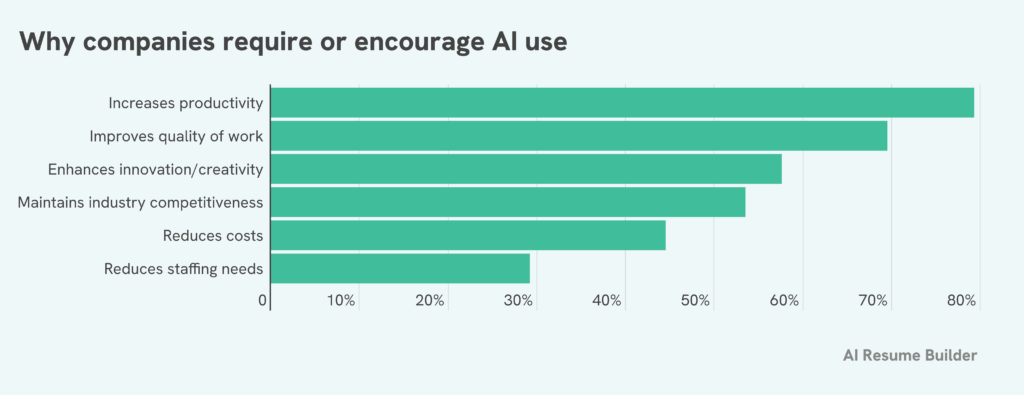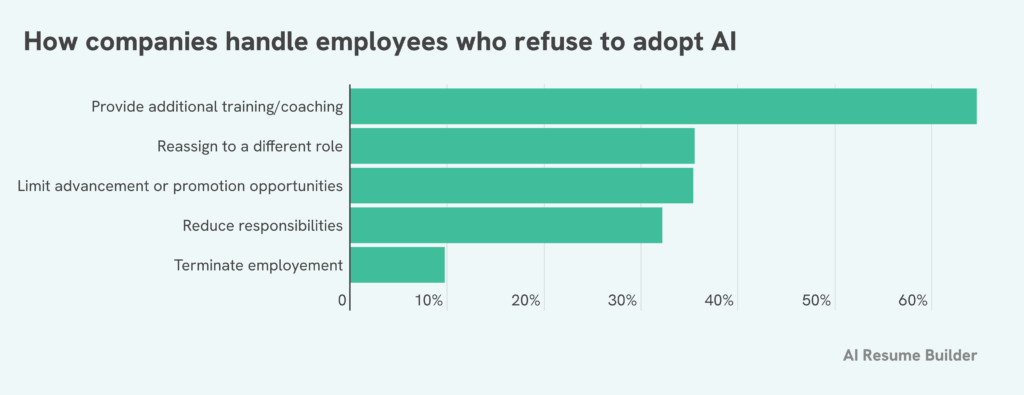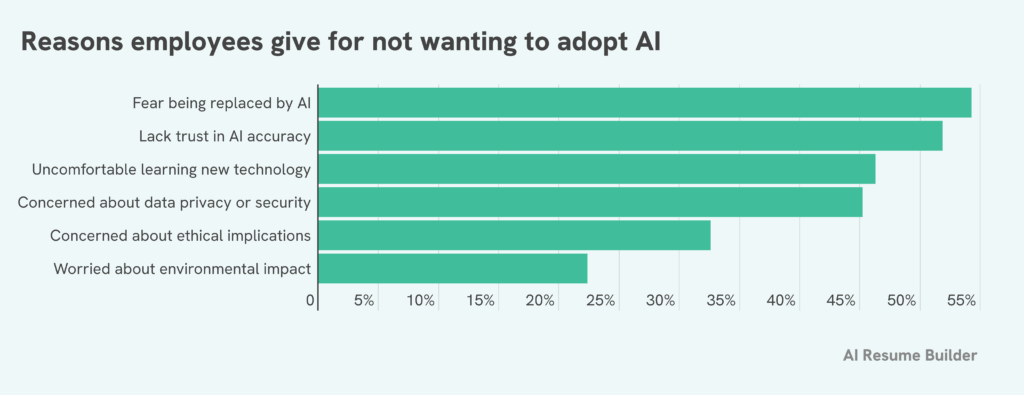AI is no longer optional in many workplaces. To understand how companies approach its use, AIResumeBuilder.com surveyed 1,295 business leaders in August 2025. This report covers why companies are pushing AI adoption and how resistance is handled.
Key findings:
- 58% of companies require AI use, and 19% encourage it
- Improved productivity and work quality drive adoption
- 1 in 10 companies that require AI use fire workers who resist
- Resistance stems from job-loss fears and lack of trust in AI
6 in 10 Companies Require Employees To Use AI
Nearly one-quarter of companies (24%) require all employees to use AI, while another 34% require only certain employees to use it. An additional 19% strongly encourage AI adoption across their workforce.
Business leaders say the top reasons for mandating or promoting AI use are its ability to increase productivity (79%), improve the quality of work (70%), and enhance innovation and creativity (58%). Other motivations include staying competitive within their industry (54%) and reducing costs (45%), with a smaller share (29%) pointing to AI’s potential to reduce staffing needs.

“The trend of incorporating AI in the workplace is only going to accelerate, and candidates who showcase AI skills in interviews and employees who use it effectively will stand out,” says AIResumeBuilder.com’s career advisor, Rachel Serwetz. “Companies have every reason to encourage AI adoption for productivity gains, but they should also invest in training employees on the risks of overreliance so that AI becomes a tool for efficiency and creativity, not a crutch. Workers, regardless of their role or industry, should start using and building expertise.”
1 in 10 Companies Requiring AI Use Fire Workers Who Resist
For companies that require employees to use AI, most respond to refusal by providing additional training or coaching (65%). However, others take more punitive approaches. About 36% reassign employees to a different role, 35% limit promotion opportunities, and 32% reduce responsibilities. A smaller share (10%) fire employees who refuse.

Job Loss Fears and Accuracy Concerns Drive AI Resistance
Business leaders report that the most common reasons employees resist AI are fear of being replaced (52%), lack of trust in AI accuracy (52%), and discomfort with learning new technology (49%). They also point to concerns about data privacy and security (44%), ethical issues (32%), and environmental impact (18%).

Older generations are most likely to resist
Business leaders say resistance is most common among Baby Boomers (35%) and Gen X (31%), followed by Millennials (22%) and Gen Z (8%), while just 5% observe no noticeable generational difference.
“Employers can help older workers get more comfortable with AI not just through training but also through hands-on sessions like hackathons where they can safely experiment with tools alongside colleagues who can teach and guide them. These low-risk environments build muscle memory to help people recognize when AI could be useful, to build confidence in their ability and desire to use it, and to see examples of how using AI could feel interesting, exciting, or beneficial rather than scary,” says Serwetz.
Methodology
This survey was conducted in August 2025, commissioned by AIResumeBuilder.com and administered online via the Pollfish platform. A total of 1,295 business leaders participated. To qualify, respondents had to be employed full-time, work at a company with more than 11 employees, earn a household income above $75,000, hold at least a college degree, be age 25 or older, and hold a manager-level position or higher.